Introduction
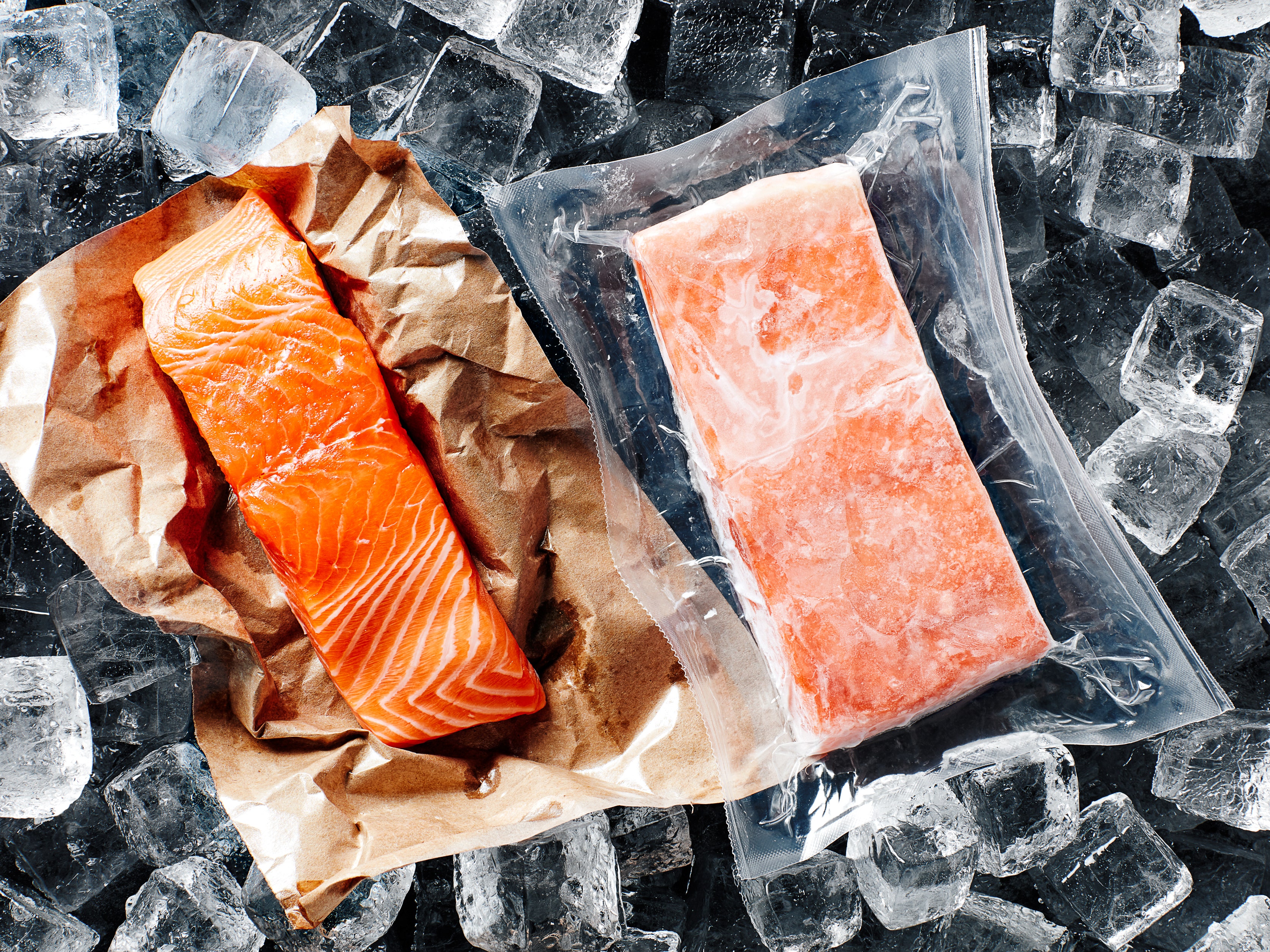
Salmon has gained immense popularity as a nutritious and delicious food choice. Whether it’s fresh or frozen, salmon offers a multitude of health benefits, including high levels of omega-3 fatty acids, protein, and essential vitamins. However, understanding the key differences between frozen and fresh salmon is important in order to make an informed decision. Fresh salmon is known for its superior quality and taste, while frozen salmon offers the advantage of extended shelf life and accessibility. In this article, we will explore the pros and cons of frozen versus fresh salmon, helping you choose the best option for your needs.
The Popularity Of Salmon As A Nutritious Food Choice
Salmon has gained immense popularity as a nutritious food choice due to its numerous health benefits. Packed with high levels of omega-3 fatty acids, salmon is known to promote heart health, improve brain function, and reduce inflammation. It is also an excellent source of protein, essential vitamins, and minerals. Furthermore, salmon is low in saturated fat and rich in antioxidants, making it a great option for maintaining a healthy diet. Its versatility in cooking methods, such as grilling, baking, or broiling, adds to its appeal as a delicious and nutritious choice for many individuals.
Understanding The Key Differences Between Frozen And Fresh Salmon
Frozen salmon refers to salmon that has been frozen immediately after being caught, while fresh salmon is sold fresh without undergoing freezing. The main difference between frozen and fresh salmon lies in their quality and taste. Fresh salmon is generally considered to have a better texture and flavor, as freezing can sometimes affect the texture and moisture content. However, frozen salmon is more readily available and often more affordable compared to fresh salmon. It’s important to note that both frozen and fresh salmon can still provide the same nutritional benefits and be incorporated into a healthy diet.
Fresh Salmon
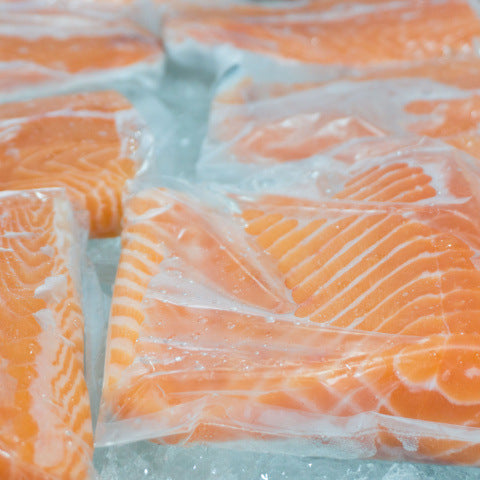
Fresh salmon refers to salmon that is sold and consumed without being frozen. It is known for its superior quality and taste compared to frozen salmon. Fresh salmon has a better texture and moisture content, making it a favorite among seafood enthusiasts. It is often considered to have a more delicate and subtle flavor profile. Additionally, fresh salmon is readily available in fish markets and grocery stores, allowing consumers to enjoy it immediately. Although fresh salmon may be more expensive and have a shorter shelf life, its premium quality and taste make it a preferred choice for many consumers.
Fresh Salmon Quality And Taste
Fresh salmon is renowned for its superior quality and taste compared to frozen salmon. Its texture is more tender, and it has a higher moisture content, making it a favorite among seafood enthusiasts. The delicate and subtle flavor profile of fresh salmon enhances its appeal. When cooked properly, fresh salmon melts in your mouth, leaving you with a satisfying and flavorful experience. Its freshness guarantees that you are getting the highest quality fish available. Enjoying fresh salmon is a delightful culinary experience that showcases the natural flavors of this nutritious and delicious fish. [7]
The Benefits Of Buying Fresh Salmon
Fresh salmon offers several benefits for consumers looking to enjoy high-quality seafood. Here are some advantages of buying fresh salmon:
- Superior taste and texture: Fresh salmon has a tender and moist texture, providing a melt-in-your-mouth experience. Its delicate and subtle flavor profile enhances the overall taste sensation.
- High nutritional value: Fresh salmon is rich in omega-3 fatty acids, vitamins, and minerals, making it a nutritious choice for a balanced diet. It contributes to heart health, brain function, and overall well-being.
- Guaranteed freshness: Buying fresh salmon ensures that you are getting the highest quality fish available. It has not undergone any freezing or preservation processes, ensuring optimum freshness and flavor.
- Culinary versatility: Fresh salmon can be cooked in various ways, such as grilling, baking, or pan-searing, allowing for a wide range of delicious and creative recipes.
By choosing fresh salmon, consumers can enjoy the best taste, texture, and nutritional benefits that this premium seafood has to offer. [9]
Frozen Salmon

Frozen salmon refers to fish that has undergone the process of freezing to preserve its freshness. This process involves rapidly freezing the salmon at very low temperatures, which helps to retain its nutrients and texture. One of the advantages of using frozen salmon is its extended shelf life, allowing for longer storage without compromising quality. Additionally, frozen salmon is often more readily available and accessible compared to fresh salmon, making it a convenient option for consumers. It also offers cost savings, as frozen salmon tends to be more affordable than its fresh counterpart.
The Process Of Freezing And Preserving Salmon
The process of freezing and preserving salmon involves rapidly freezing the fish at very low temperatures. This method helps to retain the nutrients and texture of the salmon. The fish is carefully handled and packaged to prevent any damage during the freezing process. Quick freezing ensures that ice crystals do not form, which can affect the quality of the salmon. Once frozen, the salmon can be stored for an extended period without compromising its freshness. This freezing process allows consumers to enjoy the flavor and nutritional benefits of salmon even when it is not in season. [13]
Advantages Of Using Frozen Salmon
Frozen salmon offers several advantages that make it a convenient and practical choice. Some of the advantages of using frozen salmon include:
- Availability: Frozen salmon is readily available throughout the year, regardless of the fishing season. This allows consumers to enjoy the benefits of salmon whenever they want, without having to wait for the fresh catch.
- Shelf life: Frozen salmon has a longer shelf life compared to fresh salmon. It can be stored for months without compromising its quality or flavor, providing a convenient option for meal planning and reducing food waste.
- Nutritional value: The freezing process helps to preserve the nutritional value of salmon, including its omega-3 fatty acids and protein content. This ensures that consumers can still enjoy the health benefits of salmon even when fresh is not available.
- Cost-effective: Frozen salmon is often more affordable than fresh salmon, making it a cost-effective option for those on a budget. It allows consumers to enjoy the benefits of salmon without breaking the bank.
By opting for frozen salmon, consumers can conveniently incorporate this nutritious and delicious fish into their meals while enjoying the advantages of flexibility, extended shelf life, and cost savings.
Pros Of Fresh Salmon
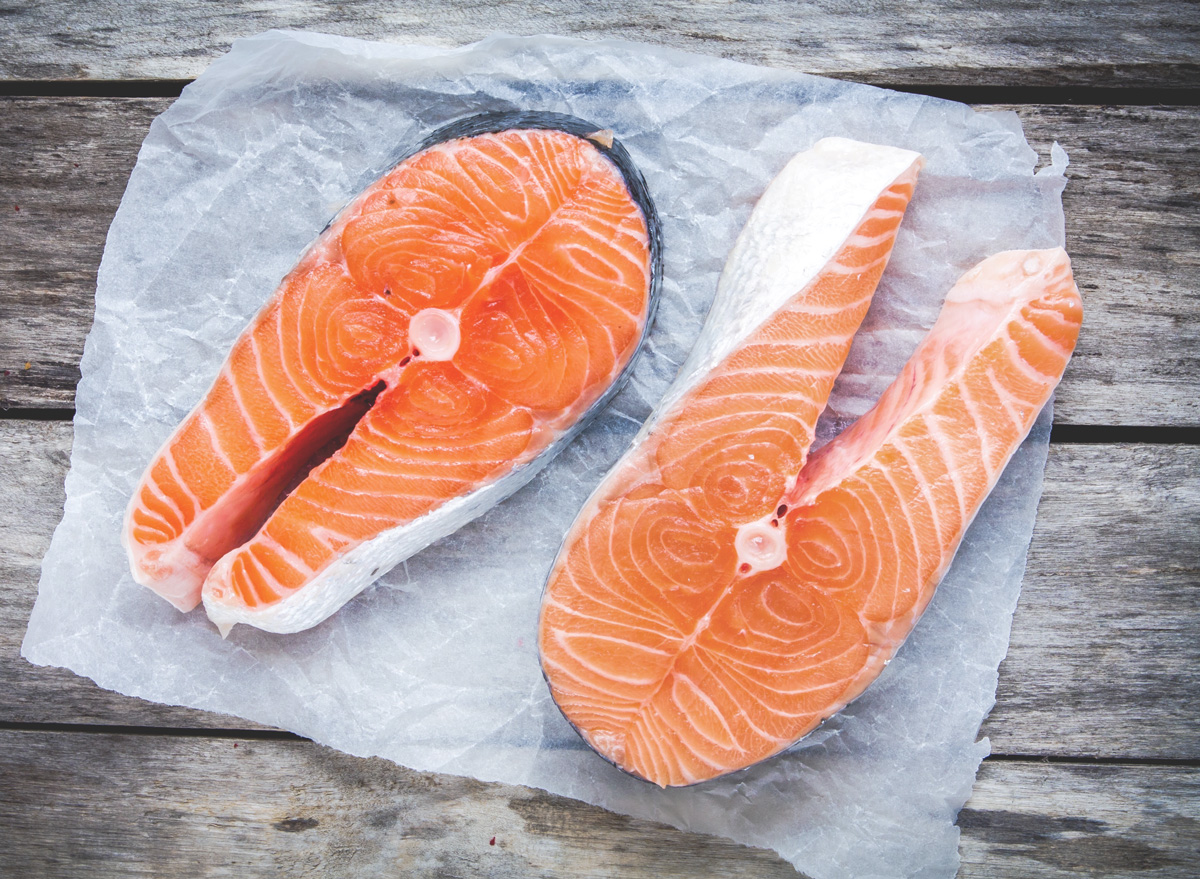
Fresh salmon offers several advantages that make it a preferred choice for many. Firstly, fresh salmon tends to have a superior quality and taste compared to its frozen counterpart. It has a delicate texture and vibrant color that enhances the overall dining experience. Additionally, fresh salmon generally retains higher nutritional value, including omega-3 fatty acids and protein content. Fresh salmon is readily available in markets, providing convenience and immediate access for those who prefer to cook with the freshest ingredients. Overall, fresh salmon is a great option for those seeking the highest quality and flavor in their seafood dishes.
Higher Nutritional Value Of Fresh Salmon
Fresh salmon is known for its higher nutritional value compared to frozen salmon. It is rich in omega-3 fatty acids, which are essential for heart health and brain function. Fresh salmon is also a great source of high-quality protein, vitamin D, and various minerals like selenium and potassium. These nutrients play a crucial role in supporting overall health and well-being. By opting for fresh salmon, individuals can ensure they are getting the maximum nutritional benefits from this superfood.
Convenience And Immediate Availability
One of the key advantages of fresh salmon is its convenience and immediate availability. Unlike frozen salmon, which requires thawing before use, fresh salmon can be cooked right away. This makes it a great option for those who want a quick and easy meal. Additionally, fresh salmon is readily available at grocery stores and fish markets, ensuring that you can easily find it whenever you need it. Whether you’re planning a last-minute dinner or have sudden cravings for salmon, fresh salmon offers the convenience and availability that can’t be beat.
Pros Of Frozen Salmon
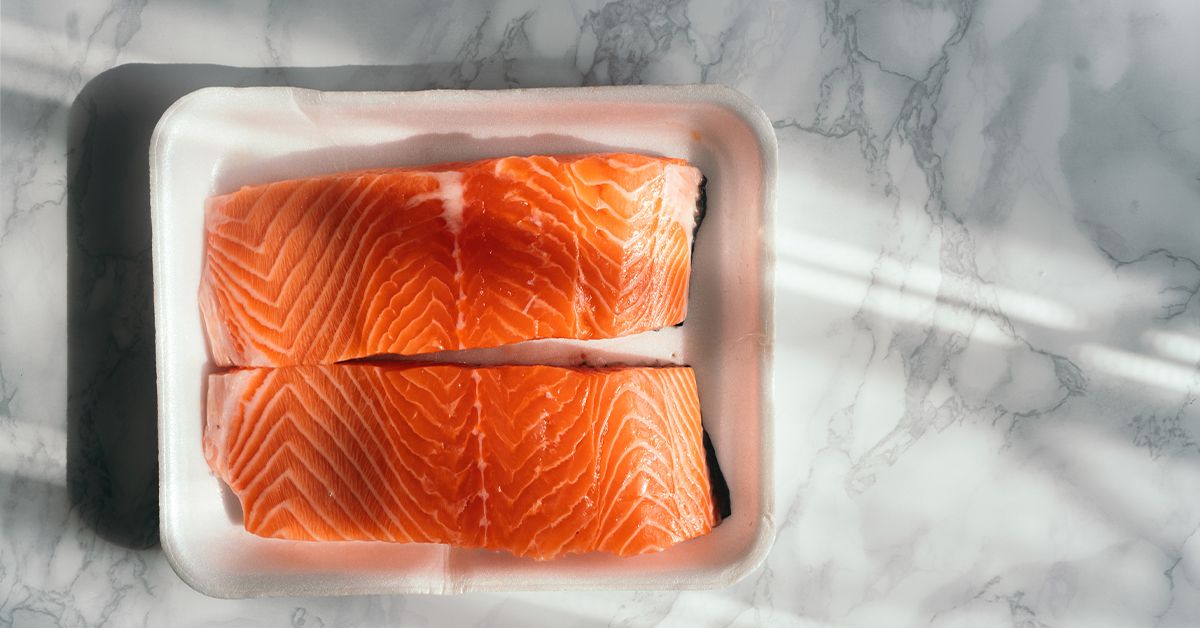
Frozen salmon offers several advantages that make it a popular choice for many individuals. Here are some of the pros of frozen salmon:
- Extended shelf life: Freezing salmon helps to preserve its freshness and extends its shelf life. This means that you can store frozen salmon for a longer period without the risk of it spoiling.
- Reduced waste: With frozen salmon, you have the flexibility to use only the portion you need while keeping the rest frozen for later use. This reduces the chances of wastage and allows for better portion control.
- Cost savings and accessibility: Frozen salmon is typically more affordable compared to fresh salmon. It is also more widely available, making it convenient for individuals who may not have easy access to fresh seafood.
- Convenience: Frozen salmon eliminates the need for thawing, as it can be cooked directly from frozen. This makes meal preparation quicker and more convenient, especially for those with busy schedules.
In conclusion, frozen salmon offers a range of benefits such as extended shelf life, reduced waste, cost savings, accessibility, and convenience. These factors make it a viable option for individuals looking for a convenient and budget-friendly choice of salmon.
Extended Shelf Life And Reduced Waste
Frozen salmon offers an extended shelf life compared to fresh salmon, making it a convenient choice for individuals looking to stock up on seafood. The freezing process helps preserve the freshness of the salmon, allowing it to be stored for a longer period without the risk of spoilage. This not only reduces the chances of waste but also provides the flexibility to use only the portion needed while keeping the rest frozen for later use. With reduced waste, individuals can enjoy the benefits of salmon while minimizing their environmental impact and maximizing their budget. Additionally, frozen salmon is often packaged in individual portions, allowing for better portion control and less food waste.
Cost Savings And Accessibility
Frozen salmon offers not only cost savings but also increased accessibility compared to fresh salmon. The lower price point of frozen salmon makes it a more budget-friendly option for individuals looking to incorporate this nutritious fish into their diet. Additionally, the availability of frozen salmon in various grocery stores and online platforms makes it easily accessible to a wider range of consumers. This means that individuals who may not have access to fresh salmon can still enjoy the health benefits and delicious taste of frozen salmon. [27]
Conclusion
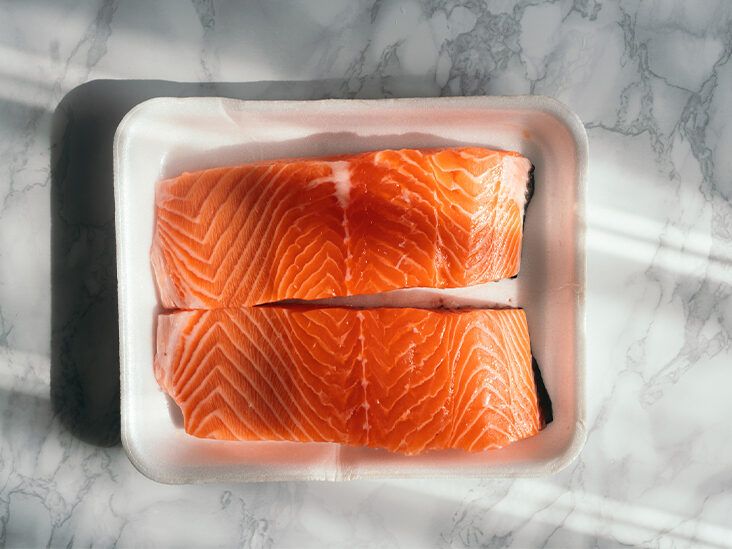
In conclusion, when weighing the pros and cons of frozen vs fresh salmon, it’s important to consider personal preferences and needs. Fresh salmon offers higher nutritional value, immediate availability, and a superior taste overall. On the other hand, frozen salmon provides extended shelf life, reduced waste, and cost savings, making it a more accessible option for many individuals. Ultimately, the choice between frozen and fresh salmon depends on factors such as convenience, budget, and availability. Regardless of the choice made, both options can still offer the health benefits and delicious taste of this nutritious fish. [30]
Factors To Consider When Choosing Between Frozen And Fresh Salmon
When deciding between frozen and fresh salmon, several factors should be considered. These include:
- Availability: Fresh salmon is readily available at local fish markets and supermarkets. However, frozen salmon can be purchased at any time and can be stored for longer periods.
- Convenience: Fresh salmon requires immediate use or refrigeration, while frozen salmon offers flexibility and can be easily stored until needed.
- Budget: Fresh salmon tends to be more expensive due to its shorter shelf life, while frozen salmon offers cost savings without compromising on quality.
- Taste preference: Some people prefer the taste of freshly caught salmon, while others find frozen salmon just as delicious.
- Nutritional needs: Fresh salmon is believed to have higher nutritional value, but frozen salmon can still provide essential omega-3 fatty acids and protein.
- Sustainability: Consider the sustainability of the source when choosing salmon, whether fresh or frozen. Look for sustainably sourced options to reduce environmental impact.
Making An Informed Decision Based On Personal Preferences And Needs
When choosing between frozen and fresh salmon, it is important to consider your personal preferences and needs. Some individuals may prioritize the convenience and longer shelf life of frozen salmon, while others may prefer the taste and higher nutritional value of fresh salmon. Consider factors such as availability, budget, taste preference, and sustainability. Additionally, take into account your specific dietary requirements and the cooking methods you prefer. By considering these factors, you can make an informed decision that aligns with your personal preferences and needs.
Frequently Asked Questions about Frozen Salmon vs Fresh
1. What is the main difference between frozen salmon and fresh salmon?
Fresh salmon refers to fish that has never been frozen and is typically sold immediately after being caught or harvested. On the other hand, frozen salmon has undergone a freezing process to preserve its freshness and extend its shelf life.
2. Is frozen salmon as good as fresh salmon?
Yes, frozen salmon can be just as good as fresh salmon. The freezing process locks in the natural flavors and nutrients of the fish, allowing it to retain its taste and quality over time. However, it is essential to thaw and handle frozen salmon properly to ensure the best eating experience.
3. How long can I store frozen salmon?
When stored in a freezer set at or below 0°F (-18°C), frozen salmon can be safely stored for up to six months. It is crucial to properly wrap and seal the fish to prevent freezer burn, which can negatively impact the texture and taste.
4. Does frozen salmon taste different from fresh salmon?
The taste of frozen salmon is very similar to that of fresh salmon. Properly handled frozen salmon can retain its flavor and texture, making it a convenient and delicious choice for seafood lovers. Some people even prefer the taste of frozen salmon as it can have a slightly milder flavor compared to fresh salmon.
5. Can I cook frozen salmon without thawing it first?
Yes, you can cook frozen salmon without thawing it first. It is safe to bake, grill, or poach the fish directly from frozen. However, it may require slightly longer cooking times compared to thawed salmon. Adjusting the cooking time will ensure that the fish is cooked through, so check the internal temperature to confirm doneness.
6. Are there any benefits to buying frozen salmon?
Certainly! There are several advantages to buying frozen salmon. Firstly, frozen salmon is often more readily available than fresh salmon, especially in areas without easy access to fishing grounds. Additionally, frozen salmon allows for better meal planning since it can be stored for an extended period. It can also be a cost-effective choice as prices may be more stable compared to fresh salmon.
7. Is frozen salmon less nutritious than fresh salmon?
Frozen salmon is not less nutritious than fresh salmon. As long as the salmon is fresh when frozen, it retains its nutritional value. Freezing effectively preserves the omega-3 fatty acids, vitamins, and minerals present in the fish. However, it is important to note that the nutritional value may slightly decrease over time, hence it is best to consume frozen salmon within the recommended storage period.
8. Are there any downsides to buying frozen salmon?
While there are many benefits to frozen salmon, there are a few things to keep in mind. Firstly, frozen fish may have a slightly different texture compared to fresh fish once thawed. Additionally, improper thawing or handling can affect the quality of the fish. Lastly, some frozen salmon products may contain additives or seasonings, so it’s essential to check the packaging and opt for products with minimal additives if desired.
In conclusion, both frozen and fresh salmon have their advantages and can be equally enjoyable. Choosing between them often depends on convenience, availability, and personal preferences.

A small, independently run fish and chip shop using quality ingredients cooked freshly in our kitchen to ensure great tasting food. All of our drinks are in glass bottles, and all of our takeaway packaging is recyclable or compostable to help reduce our impact on the environment.